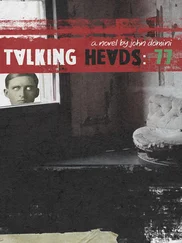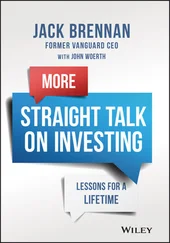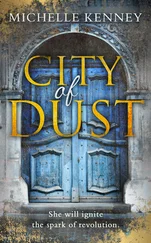He stopped briefly and looked to the sky, the stars and their light, already a thing of the past. The future is already happening.
• • •
He returned home, chilled, and took a hot shower.
The bedroom was cold and he slipped under the thick duvet. He leafed through the book. Harold and the Purple Crayon . He put it on the nightstand.
He would call her in the morning. Franny. He would call her. It wouldn’t be easy. It would take time to mend. But for God’s sake, he was her father. That had to count for something. There was time. Surely there was time.
The scheisse hits the fan.
Henke had returned home after a typical evening for him. He’d dined out with friends. They’d gone to the Soho House for drinks, then on to the Spotted Pig. What had started out as six morphed into fourteen. Friends. Friends of friends. Most owned or ran websites or data firms. All were wealthy, many were foreign born, and no one was over thirty-five. They ordered wine with abandon, unconcerned with the price. The women in the group were young, mid-twenties, and uniformly beautiful. Drugs were consumed in the bathrooms and, later, sexual acts consummated. They raged like it was New Year’s Eve.
By 4:45 a.m. they parted, noisily, unconcerned about sleeping neighbors who had to get up to work, about toddlers asleep. They were the center of the world.
He had come home and taken a long shower, made an espresso, and rolled a joint, the two drugs seeming to contradict each other. He wandered his loft-space nude, a fan of his own body, the large windows open to the building across from his. The smoke smelled good, the marijuana creating a calming effect, elongating time for him.
Franny’s story hadn’t arrived. Throughout the night he’d been waiting for it. He was eager to post it. Now he stood at the kitchen counter and browsed the company’s server, one of only three people with the password to do this, looking at stories and photos and videos that employees had uploaded and thought private. Henke didn’t care. And he had made sure his lawyers had spelled out, deep within the pages of any employee contract, that Henke had complete autonomy over the scheisse cloud.
So there it was, in Frances Grayson’s folders. He read it. Against her wishes, against any semblance of decency and morality. He read it fast, excited by its deeply personal nature, by the shame and embarrassment he knew it would cause both. Other people’s shame excited him. He was of the opinion that most people felt this way but just refused to admit it. That we liked it when others fell, that it made us feel superior. He read it again, more carefully this time, and knew what it was, what it would be.
How strange people were, Henke thought, as he took another hit from a joint. How sentimental and foolish. Maybe it was an American thing. Their naïve, wide-eyed optimism. Their narratives of good and bad, right and wrong, of justice. They were genius screenwriters of their own false history, one that caused so much pain to others, so much war and death, so many lies. That’s how Henke saw it. And yet they were such a trusting people, believers in a basic goodness. Try history, Henke thought. Try the history of the world. Of Europe from 1932 to 1945. Of Russia from 1917 to now, really. Of Africa since the dawn of time. Of America, itself. Slavery, segregation, mass incarceration. Of race and poverty and vast wealth in the hands of a few. No more fake narratives. Everything out on the table. Show it all. It doesn’t matter who you hurt because the ultimate good is light. They were the ones who would change the world.
And if we were going to lay it out on the table, he hated Frances Grayson.
It was so easy. A gift, really. He found a picture of Ted from the New York Post , one where he was trying to hide his contorted face. He dragged the photo to a scheisse template page, entering the password allowing the creation of a post. He cut and pasted Franny’s story and took a deep drag of the joint before typing these words in all caps.
THE TRUTH ABOUT MY FATHER, TED GRAYSON. BY FRANCES FORD GRAYSON.
The cursor blinked, daring Henke to click it. Or so it seemed in his addled state. And click he did. It was 6:21 a.m. It was alive.
He turned out the lights and walked to his bed. This, he thought as he lay down, was journalism now. He felt very good.
• • •
Claire stared at her phone. It was early and she was making coffee and since she’d turned the ringer on it had pinged again and again and again. She scanned it the first time, then sat down and read it.
Her palms were sweating now. Her stomach in knots. Maybe it was the hour, so early, a half sleep. Maybe it was the vitriol of the piece itself, the anger, the personal nature of it, Claire and Ted still, always, Franny’s parents and Claire somehow complicit in this story.
Claire downed an espresso and had set up another when her cell rang. Franny.
“Oh God, Franny.”
“Mom.” The old Franny. Pure panic. “I didn’t…” She couldn’t finish.
• • •
Ted slept until almost 7:30. Late for him. He opened his eyes and felt refreshed. He lay in bed and listened to the sound of birds outside the open window, the wind through the pines in the backyard. Sun streamed in at an angle, illuminating the old floorboards. The room was cold. He was looking forward to a cup of hot coffee.
He looked at his phone. He would remember this. That is what one does in the new world. Before you have gotten out of bed. Before you have gone to the toilet for a morning pee. You look at your phone. Except for some reason he decided not to. What would he find there but a new posting about his shame. A new demand that he be fired. The day had so much promise. He would call her. Coffee first.
He dressed quickly, threw on a jacket, and walked into the village. The day was sunny and cool, high clouds moving fast. His head was clear. He seemed to see things in sharper relief. He stopped into a café and bought a coffee, a lemon poppy seed muffin, and the Times .
He returned home, sat in the kitchen, sipped his coffee as he leafed through the Times , starting with the obituaries and moving on to sports. He liked the box scores. Baseball season had started. How were the Red Sox doing?
He stood to heat up his coffee and saw his phone. Reflexively, he turned it on. Texts, emails, missed calls. From Polly. From Tamara. From Claire. Producers from morning shows. We can work with you on this. Call me. Call me. Call me.
And, of course, a link to the story. He read it. Skimmed it, really. His eyes couldn’t quite land on the words. He started again, forced himself to slow down. And what surprised him was this. He didn’t know he still had the capacity to be so badly hurt.
• • •
Emergency state of mind. He packed up and left. He needed to move, to run. He didn’t make the bed. Didn’t wash the dishes in the sink. He got in the car and left. He had to escape, to get away from the words.
The phone rang and pinged. He drove and listened to the messages.
Polly. “Ted. This is a problem.”
Simon. “Ted. What the fuck? She was supposed to show it to us.”
Tamara. “Ted. Hoping we could have a chat soonest. Call me.”
A producer from the Today show. “Ted. We’d love to have you on tomorrow. We feel the world needs to hear your side of the…”
A producer from Good Morning America . “Ted. We’d love to have you on tomorrow.”
An agent from William Morris Endeavor in Los Angeles. “Ted. I think we can sell this as a series to Netflix.”
Читать дальше












